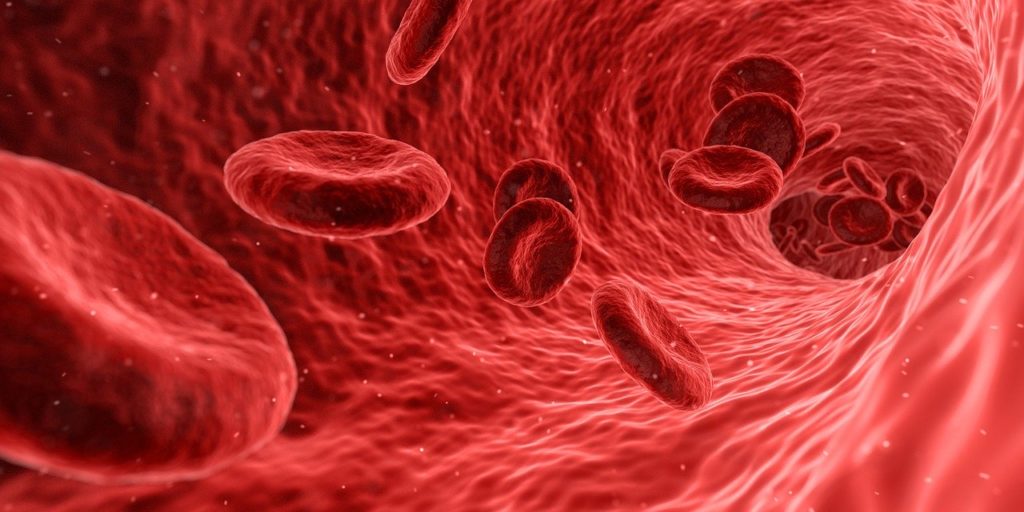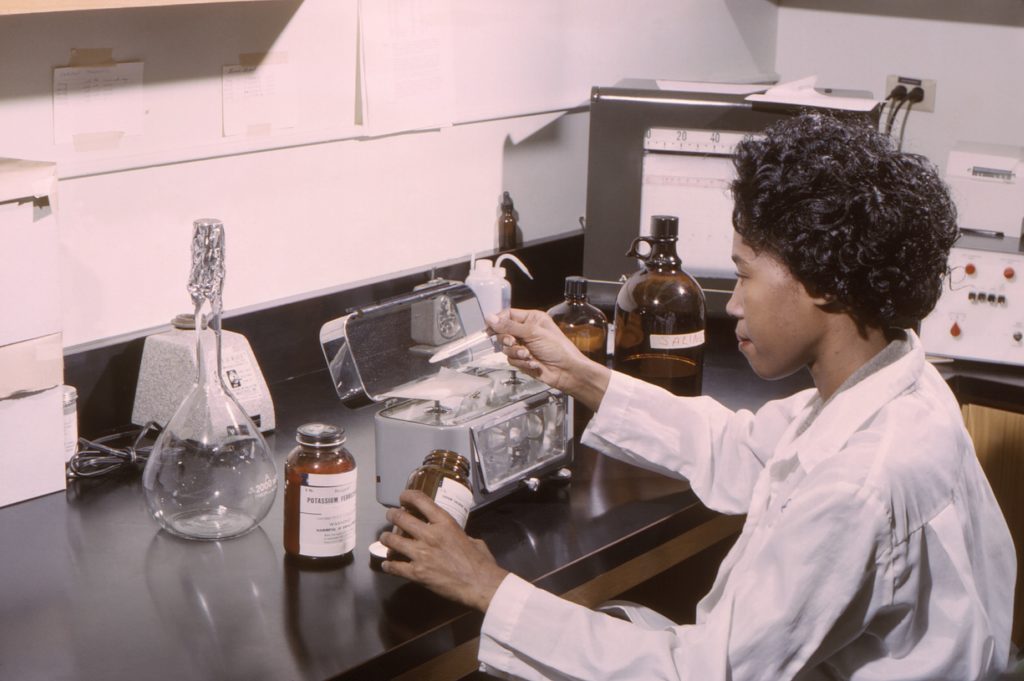If you are confused about the similarities and differences between mechanical vs chemical engineering, let us help you out there!
First, if you’re looking to launch your own blog and start writing articles yourself, no matter what the subject, you can launch your blog with Bluehost for just $3.95/month.
Start creating content and launch your blog with Bluehost.
Mechanical Engineering
Mechanical engineering uses the knowledge of materials and physics to create things like manufacturing equipment, engines and vehicles. This can be a bit more hands-on than other disciplines, as you are working with things that you can interact with directly and you can see moving. They also use a variety of tools in their work, especially 3D CAD (Computer Aided Design) software like AutoCAD, Revit, Inventor and Fusion 360 to help visualize and test their designs before anything goes into production.
Mechanical engineering will require you to take high level math and science classes, often including physics. It will involve a lot of mathematical work, as you will need to be able to work out solutions for stresses, forces and aerodynamics.

Chemical Engineering
Chemical engineering is the use of biological and chemical processes to create useful substances or materials. One famous example is the Haber process, a chemical process that converts nitrogen from the air into ammonia, and this can be used to make fertilizers. It is estimated that a third of all of the people on Earth rely on this process to have enough food to eat, so there is no doubt that chemical engineering is very important!
Pros and Cons of Mechanical vs Chemical Engineering
Mechanical Engineering
Mechanical engineers typically develop and design physical products. They design a wide variety of things including: HVAC systems, aeroplanes, printers, refrigerators and much more. Mechanical engineers must also be able to find efficient ways of manufacturing products, designing product blueprints, running simulations and testing products.
Pros and Cons
The main pro of working as a mechanical engineer is the pay, especially as you gain more experience in your career. This makes mechanical engineering one of the higher paying engineering disciplines.
Another pro of mechanical engineering is the fact that it is not very physically labor-intensive. Most of your work will be done in a well furnished office space on a computer, but you may get out of the office at times depending on your particular job.
Mechanical engineering is probably the most diverse engineering careers possible. There are lots of different industries that you can obtain a mechanical engineering job in.
Just one of the main cons of mechanical engineering is that it has a very competitive atmosphere. Mechanical engineers do receive favorable advancement opportunities, but generally these do not come easy! It is difficult for new graduates to get place in a good company unless they are in very good colleges or they have great skills.
Chemical Engineering
A chemical engineer’s work is mainly devoted to creating manufacturing processes for chemical parts. Chemical engineering is focused on manufacturing and using chemicals in areas like energy, pharmaceuticals and basically any other field that includes the specialized knowledge of chemical processes and chemical elements.

Pros and Cons
Chemical engineering has a lot of positives to it. It is one of the higher paying engineering fields, coming up with a median wage in the low six figures and as much as 10 per cent of its professionals making over $150,000.
They also have the option of picking any industry they want to work in, as nearly all engineering fields have broad applicability. However, it’s easy to admire at the sheer amount of fields chemical engineers can wind up working in.
Obvious places like pharmaceuticals are a main focus, but less obvious places include manufacturing, developing new cleaners and architecture, paints, lipsticks, paint removers and pretty much everything else.
Of course, there are some cons involved with chemical engineering. Depending on where you are employed as a chemical engineer, your job could include some safety issues. Once you are mixing chemicals together, in particular the ones that aren’t mixed very often, there is always a chance that you can cause a fire or explosion.
Mechanical vs Chemical Engineering Curriculum
Mechanical Engineering
To become a mechanical engineer one must acquire a bachelors degree in mechanical engineering, and this is a four/five year program depending on the university that you go to. Mechanical engineering’s curriculum needs an in-depth knowledge and understanding of physics and mathematics.
It includes motion science also known as motion control. Students also learn about materials, how materials are shaped, when to expect failure from the material and how the material deals with stress. They will also learn about control systems that “control” when, where and how power is delivered to a material, and the systems that will apply such power.
Fluid mechanics will also be studied, this is where students will learn the versatile qualities of fluids in a closed hydraulic system and also in a larger, open hydraulic system like the ocean and atmosphere. The fundamentals of robotics and product engineering will also be covered. A way for either a mechanical or chemical engineer to brush up on their skills, or maybe even learn some new skills in a different field, is to take an online course on the likes of LinkedIn Learning. They a multitude of course in every field, and it’s free for the first 30 days!
Chemical Engineering
A budding chemical engineer will learn about polymers, energy, nanotechnology and biotechnology, along with material science. Similar to mechanical engineering, a strong emphasis is placed on math and physics, and a specific focus on biology and chemistry.

Mechanical vs Chemical Engineering Wages
Chemical Engineers
As of May 2011, chemical engineers received a median wage of $47.81, or a $99,440 salary, the Bureau of Labor Statistics states.
Chemical engineers are employed in architectural and engineering services and any other field that is involved with the production of chemicals. Chemical engineers are found in a diverse amount of fields, an example of a field is breaking petroleum down to its chemical parts and designing the catalytic cracking units. Others engineers work with synthetic rubber, synthetic fibers and elastics for both industrial and consumer use.
A very specialized type of chemical engineering that is not related to the petrochemical field is the production of perfume. You can praise the work of chemical engineers who merged the elements of the fragrance, if you like your spouses perfume!

Mechanical Engineers
Mechanical engineers received $40.17 an hour, or a $83,550 salary for the same time period. They design the systems included in buildings, like the building’s HVAC systems or elevators. In the aerospace field, mechanical engineers create subsystems of spacecraft and aircraft, like the landing gear. When they are employed in general manufacturing, mechanical engineers create industrial systems and machines to develop parts. They also create research and scientific instruments such as those used in researching the ocean.
Mechanical vs Chemical Engineers Job Outlook
The Bureau of Labor Statistics estimates most professions to grow at an average of 5% each year between 2018 and 2028. Mechanical engineering jobs are expected to increase at a slightly slower rate, at about 4% during that 10 years. Chemical engineers fair slightly better, with an employment increase of 6% from 2018 to 2028, about as fast as the average for all occupations.
Both of these disciplines are linked to the performance of the industry’s economy within which they are employed, and their work is carried out at the initial stages of any mechanical/chemical project. Once the industrial process is started, or the new type of material is created for apparel manufacturers, the need for mechanical/chemical engineers becomes less urgent.
Mechanical vs Chemical Engineer
Mechanical and chemical engineers are both involved in creating products. The individual types of products/devices vary since chemical engineers usually focus on the machinery used to produce and process a variety of products. Chemical engineers often are on a higher salary and work with more dangerous substances that mechanical engineers.
Responsibilities
The focus of a mechanical engineers work is mechanical devices and machines. Chemical engineers concentrate on processing products using chemicals and other substances and developing equipment. They may both be involved in creating new products but chemical engineers concentrate on the process of manufacturing itself.
Mechanical engineers design prototypes of their products as a test-run, and while they may monitor the production of their creations they are not involved in establishing the safety standards or production methods the way that chemical engineers are.
Mechanical Engineers
Anyone that has used a generator, refrigerator or an escalator has interacted with devices created by mechanical engineers. They merge their creative and technical skills to create new devices and machines. They most likely spend most of their time performing tasks in an office environment, but may also travel to location is where a large machine is being installed.
Mechanical engineers may work in a range of manufacturing sectors or with engineering companies. Graduate students are usually required to have a Professional Engineer (PE) license to reach advanced positions in management and research.
A mechanical engineers job responsibilities include:
- Evaluating the performance of prototypes
- Modifying design plans
- Creating design plans for devices
- Monitoring production
- Assessing technical issues with mechanical equipment
Chemical Engineers
Chemical engineers prioritize the method of production in their work. They might be included in the process of creating products as varied as plastics, food and energy. Usual employers include businesses that concentrate on petroleum production or chemical manufacturing.
Chemical engineers do not need a PE (Professional Engineer) license to start their career in this discipline, however professionals seeking promotional opportunities may require a license. They may spend most of their time working in an office similar to a mechanical engineer, however they may need to travel as part of their work.

Chemical engineers job responsibilities can include:
- Preparing project budgets
- Using computer design software to design production equipment
- Researching production methods
- Evaluating the production process and equipment performance
- Creating safety protocols
Thank you very much for being here – we appreciate you taking the time to read our content. If you have anything to add, please feel free to leave a comment down below, and sign up to our newsletter for more of the same!
You can also follow us on LinkedIn, Facebook, Twitter, and Instagram so you can stay up to date.



